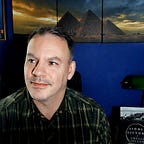Exploring The Occult Sylvia Plath
Few poets have possessed the mysterious power that Sylvia Plath possessed.
Her poetry was odd, sometimes even unnerving, employing darkly evocative language in poems that have retained a sense of mystery despite decades of scholarly examination of her work. Through it all, Plath’s poetry has retained a vitality that most writers can only dream of achieving.
Even when (perhaps, especially when) Plath’s meaning is unclear, her words hum with shadowy electricity.
Now — we may have a better idea why.
In her new book, The Occult Sylvia Plath, Julia Gordon-Bramer (who is an exemplary wordsmith that has delivered a true labor of love with this book) delves into Plath’s esoteric beliefs.
To say Plath was “into” the occult would be a gross understatement. With a Freemason as a father and an academic mother who wrote her master’s dissertation on Paracelsus, one of the most important alchemists in history, Plath was quite literally born into the world of the symbolic, the archetypal, and the spiritual. Her husband, fellow poet Ted Hughes, enhanced his wife’s magical interests, as he too shared a deep preoccupation with the occult and paranormal.
Again, we’re not speaking here about people who read a few HP Lovecraft stories and…
